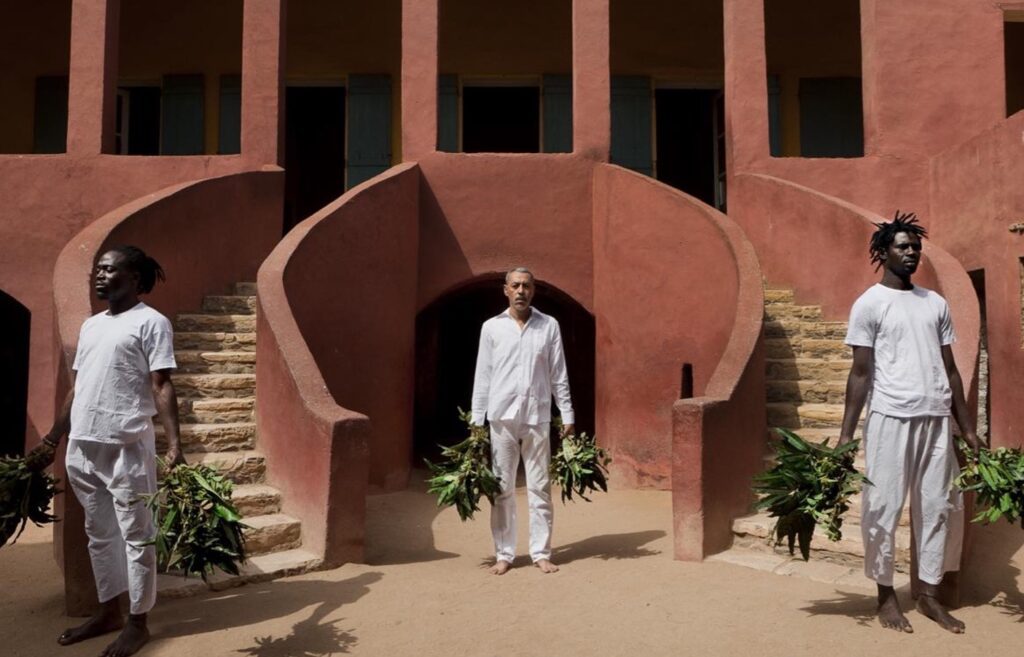Sammlung Philara, Düsseldorf, Germany
26 Feb 2022 - 26 Jun 2022

Ayrson Heráclito, The Cleansing of Goree Slaves House, 2015. Video still. © the artist and Southern Stars Projects
How can history and collective memory be mediated with the present? What forms of commemoration does the future need?
Stemming from the debate around the re-evaluation of monuments in public space, the Adjustable Monuments group exhibition poses questions on whom, what, and above all, in what form we want to commemorate in future. Nine artistic positions, including those of international artists and collectives, cast light on aspects of current opinion in regard to statues, monuments and memorials, and are complemented by new forms of memory culture.
Azra Akšamija, Maximiliane Baumgartner & Alex Wissel {in cooperation with Madeleine Bernstorff, Ewa Einhorn & Karolin Meunier, Timo Feldhaus}, Black Quantum Futurism, Michael Blum, Danielle Brathwaite-Shirley, Zuzanna Czebatul {in cooperation with Lazaro Rincón, Léa Mainguy, Jullie Bijoux, Zoé Couppé, Natália Drevenáková, Kristýna Gajdošová, Yuliya Herhalava, Marie Olšáková, Samuel Stano, Marie Zandálková}, Aleksandra Domanović, Petrit Halilaj, Ayrson Heráclito, Ülkü Süngün
Monuments in public space are often problematic. Memorials can, for example, serve right-wing and antidemocratic groups as settings for nationalist ideological legitimisation, represent the exclusion of marginalised groups and, in addition, project a one-sided, seamless construct of history with a claim to eternity. Alongside urgent questions of who has the right to write history, and by whom it is written, the Philara Collection wishes to focus on and discuss the forms and functions of commemoration, and their origins and narrative construction. What alternative concepts of history can be formulated? Does commemoration serve the interests of state and capital, or does it offer society as a whole a sphere for continuing negotiation?
The positions in the exhibition encompass novel approaches to the memory culture of our present time. They draw upon a variety of practices: these include ritual acts and adoption of immaterial, temporary, flexible, interactive, process-oriented, multidirectional, and collective approaches. The representative function, the understanding of temporality, commemorative practices, and the materiality of monuments are thus reformulated, and augmented by important aspects of the current culture of debate, including political commissioning processes and representation.
The Adjustable Monuments exhibition will be accompanied by an extensive complementary programme in the spring of 2022, including a round-table discussion, and a publication.
The exhibition is realized with the support of the Kunststiftung NRW and the German-Czech Fund for the Future.